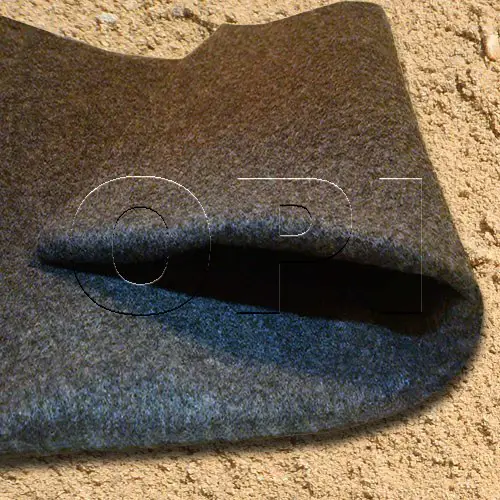When it comes to setting up an above ground pool, it’s important to consider what to put underneath it. Choosing the right materials can prevent any potential damage to the pool liner, provide stability, and enhance the overall enjoyment of your pool. In this article, we will discuss various options and provide a complete guide for what to put under your above ground pool.
Amazon’s 5 Best Pool Liner Pad for Above Ground Swimming Pools
1. Pool Base Materials
The first consideration when deciding what to put under your above ground pool is the pool base materials. By the way, if you don’t know how to install an above-ground pool, you can check our previous article. Here are some popular choices:
| Material | Description |
|---|---|
| Sand | Provides a smooth surface, easy to level, and helps in absorbing minor unevenness. |
| Crushed Stone or Gravel | Offers excellent drainage, stability, and prevents erosion. However, it may require additional layers for proper leveling. |
| Paver Base | A solid and compacted base with good drainage qualities. It provides a flat surface for your above ground pool. |
| Concrete Slab | An extremely durable and solid option, but it may require professional installation and is more expensive. |
| Ground Cloth or Tarp | This is placed between the ground and the pool liner to provide an additional layer of protection. |
2. Preparing the Ground
Before placing any materials, it’s essential to prepare the ground properly. Here are the steps to follow:
- Choose a level area in your backyard that is free from rocks, roots, and other sharp objects.
- Remove any grass or vegetation within the pool area.
- Use a shovel or a tiller to level the ground as much as possible.
- Consider using a pool installation kit or professional services for precise leveling.
3. Pool Pad or Foam
A pool pad or foam is an excellent addition to any above ground pool setup. It provides a cushioning barrier between the ground and the pool, preventing any potential damage to the pool liner. It also helps in creating a more comfortable and enjoyable swimming experience. Here are the top choices:
- Protective Foam: Easy to install, lightweight, and offers superior protection against punctures and abrasions.
- Rubber or Carpet Padding: Offers additional insulation, reduces heat loss, and provides a soft underfoot feel.
- Geo-textile Fabric: Prevents the growth of weeds, resists soil erosion, and acts as a protective layer.

Credit: m.youtube.com
4. Additional Considerations
Here are a few additional factors to consider when deciding what to put under your above ground pool:
- Climate and Weather Conditions: Consider your local climate and weather patterns, as certain materials may be more suitable for extreme temperatures or high moisture areas.
- Pool Size and Weight Capacity: Ensure the chosen materials can handle the weight of your pool, including the water and the swimmers.
- Manufacturer’s Recommendations: Refer to the pool manufacturer’s guidelines and recommendations for the best materials and practices.
- Regular Maintenance: Keep in mind that regular maintenance and inspections of above ground pool are necessary to maintain the integrity of the pool base and materials.
In Conclusion
Choosing the right materials to put under your above ground pool is crucial for its longevity, stability, and overall enjoyment. Consider the options mentioned in this guide, prepare the ground properly, and follow the manufacturer’s recommendations. By doing so, you can create a safe and inviting swimming environment for years to come.





